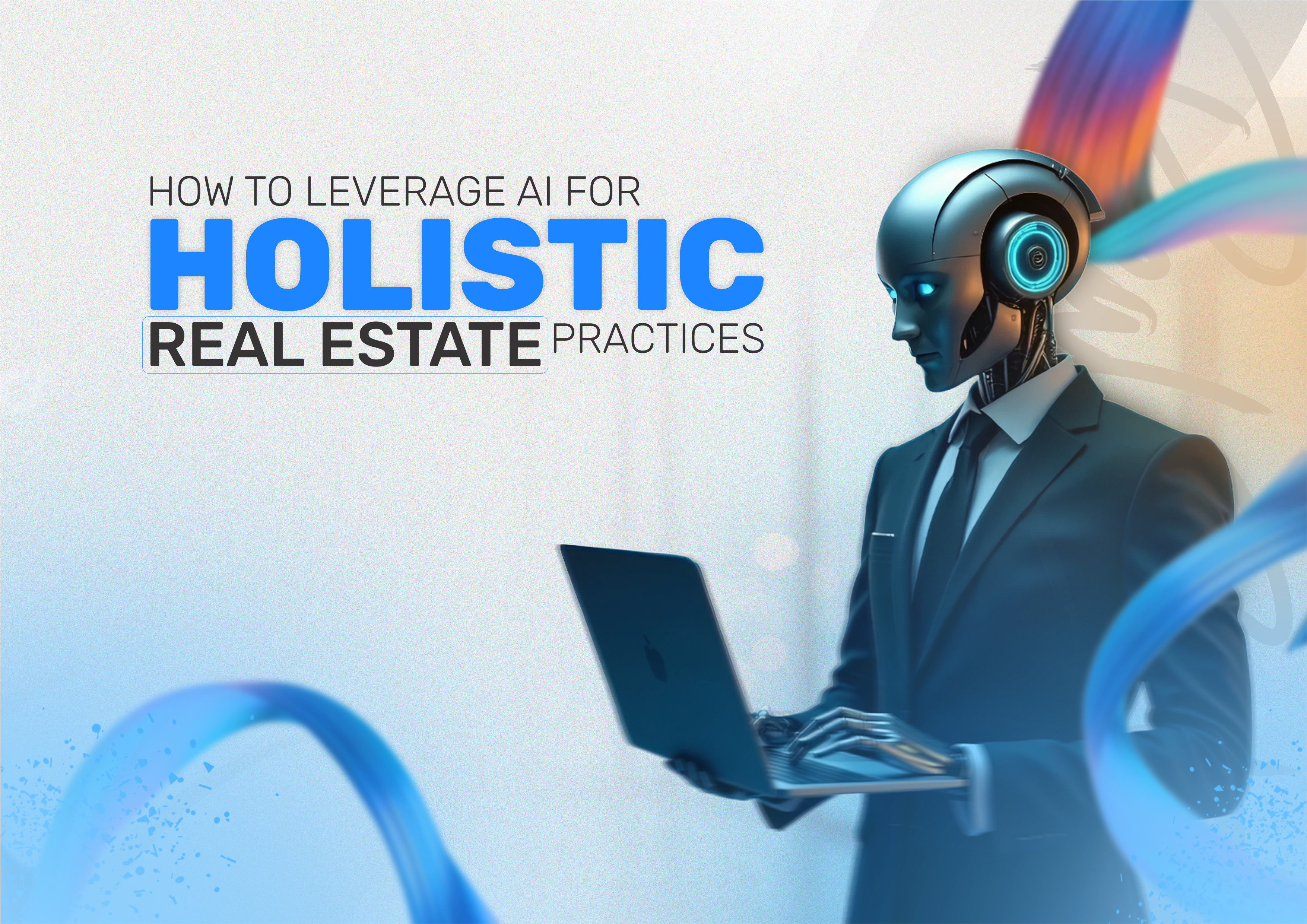Back in the day, open houses in Los Angeles felt more like private parties than property showings. You’d walk into a sunlit bungalow, greeted by the scent of fresh lemonade, the soft crackle of jazz on vinyl, and neighbors swapping stories in the kitchen.
Every now and then, a well-known face would wander in, adding an unexpected spark of excitement. These moments made buying a home feel personal, exciting, and distinctly Californian; a mix of curb appeal and community spirit that defined real estate in the Golden Era.
But imagine if every buyer’s experience today could capture that same feeling of exclusivity and connection, only now enhanced by technology. With AI-driven platforms, personalized recommendations, and virtual tours, modern real estate is blending the best of both worlds.
The feeling of those old LA open houses is coming back, but now it’s powered by smart technology instead of just good vibes and lemonade.
With AI, holistic real estate practices feel both classic and brand new at the same time. So, how does AI actually make all this happen? Let’s find out together.
What Makes a Real Estate Practice Truly Holistic
What does it mean for a real estate practice to be truly holistic? It’s a question that provokes debate, even among industry veterans. For some, it’s all about offering a complete package, property search, financing guidance, post-sale support, but that’s just a starting point.
Today, holistic means integrating technology, market intelligence, and genuine human connection into every part of the process.
It’s not enough to automate paperwork or provide data dashboards. A holistic approach considers every touchpoint in the client journey. From anticipating needs, responding to questions quickly, and making each step transparent.
The best practices in 2025 don’t just streamline transactions; they create a sense of partnership, community, and trust that keeps clients coming back.
The real innovation happens when property professionals blend smart automation with a personalized touch, making clients feel seen and supported. As expectations keep rising, those who master this balance will define what it truly means to deliver holistic real estate.
Automated Lease Processing
Automated lease processing is changing the way people work in real estate. Instead of dealing with piles of paperwork or chasing emails, teams now use easy online tools that handle everything for them.
With the help of AI, things like making documents, getting e-signatures, checking rules, and even planning rent payments can all happen automatically. This means people spend less time on boring tasks and more time actually helping their clients.
A recent industry report found that 75–90 percent time savings illustrate how AI enables faster decisions and cost savings. For instance, lease abstraction, which traditionally takes ~4 hours, can be completed in ~0.5 hours with AI.
For businesses, the benefits are clear: fewer disputes, faster deal closures, and greater transparency throughout the process. These improvements help property managers create a more trustworthy and efficient leasing experience for everyone involved.
As technology advances, automated lease processing isn’t just a trend; it’s quickly becoming the foundation of modern, holistic real estate operations.
Personalizing Tenant and Buyer Experiences with AI
In the current real estate market, one-size-fits-all service just doesn’t cut it. Artificial intelligence is reshaping how property businesses connect with tenants and buyers, making every interaction more personal.
With AI-powered chatbots, smart segmentation tools, and real-time data analysis, it’s now possible to tailor recommendations and streamline communication based on a client’s unique needs and interests.
A 2024 study from McKinsey found that real estate agencies using advanced personalization see a 10% higher customer retention rate and significantly improved satisfaction scores. By leveraging AI, property professionals can anticipate questions, resolve issues quickly, and offer virtual tours or neighborhood information before a client even asks.
Personalized experiences create stronger connections and foster trust, transforming the way people buy, rent, or invest. As digital innovation continues, those who embrace this holistic, tech-forward approach are redefining industry standards and setting themselves apart from the competition.
Smart Valuation Models and Predictive Analytics
Property valuation has always been a mix of objective data and expert judgment. Now, AI-driven valuation models are shifting the balance by giving real estate professionals access to precise, data-backed estimates in real time.
Using machine learning, these systems analyze factors like neighborhood trends, recent sales, economic indicators, and even social sentiment. This approach enables businesses to make more informed decisions, mitigate risk, and remain competitive in a rapidly evolving market.
Recent research by PwC indicates that over 75% of top real estate firms have adopted some form of predictive analytics to inform their investments and pricing strategies as of 2024. These tools not only identify patterns but also anticipate shifts, providing users with a significant advantage in spotting undervalued assets or emerging hotspots.
As predictive models become more sophisticated, trust in data-driven strategies continues to grow. This evolution marks a turning point for holistic real estate, making property valuation and forecasting more reliable than ever before.
Professional Support for Holistic Real Estate Practices
Do you remember those LA open houses always put people at ease?
Speaking of feeling at ease, AXIOM provides AI-driven solutions to help real estate teams work smarter and build real trust, without the stress.
And hey, you shouldn't be spending time on manual real estate tasks. Let's book a free discovery call and explore more about your business.
How Real Estate Businesses Optimizing Their Workflows
For many people in real estate, paperwork and document management still consume way too much time. New AI tools are changing this situation. Now, everything from writing contracts to checking for mistakes can be done automatically.
Digital storage and smart search features make it easy to find what you need and keep track of changes. This means less risk of losing important papers or making errors.
Studies show that real estate businesses using workflow automation cut their processing time by 40% and make fewer costly mistakes. With this extra time, teams can focus on what matters most. This means helping clients and understanding properties, not just chasing signatures or sorting through files.
As these tools continue to improve, the use of AI for document and workflow management is becoming increasingly common. It’s not just a fancy upgrade anymore. It’s what real estate teams now expect when they want work to be smooth, clear, and fast.
How Better Systems Help Keep Real Estate Information Safe
Trust is at the heart of real estate. When more things go digital, clients want to feel safe. They need to know their information is private and their deals are handled honestly. The best property businesses use AI not just for speed, but to keep everyone’s data secure and the process clear.
Digital contracts are encrypted, so only the right people can see them. Extra security steps help stop mistakes before they happen. Audit trails make it easy to check the details if anyone has questions. All of this helps everyone feel more confident, every step of the way.
According to a 2024 survey by the Real Estate Standards Organization, a massive number of firms adopting AI tools reported greater client confidence in their data security practices.
Property professionals who openly communicate how these systems work, explaining the safeguards in place and the benefits for all parties, stand out as leaders in a crowded, fast-evolving field.
Final Words
Real estate has always been about more than just buying or selling a property. Back in the day, those open houses with lemonade and music made everyone feel like they belonged. Today, even as technology changes how things are done, people still want that same sense of trust and personal touch.
With AI, real estate teams can create an enhanced experience, help with lease management, provide personalized recommendations, and ensure every detail is accurate. When you combine helpful technology with real care for your clients, every home search feels special.
If you want to bring this kind of smart, human approach to your real estate business, AXIOM is ready to help. Book a discovery call today to see how we can make your process better, just like those classic open houses, but with the power of modern AI.
FAQs
What does holistic real estate mean today?
Holistic real estate now refers to practices that blend technology, market expertise, and genuine human connection. This approach ensures every stage of buying, selling, and property management is more transparent, efficient, and client-focused.
How is AI changing the way property businesses operate?
AI helps automate repetitive tasks, delivers precise data analysis, and enables more personalized service for buyers and tenants. Therefore, property teams can work smarter and respond faster to shifting market needs.
Is AI secure for real estate transactions and client data?
Modern AI-driven solutions use encryption, access controls, and automated compliance checks to keep sensitive information safe. Firms that openly communicate these protections build greater trust with their clients.





